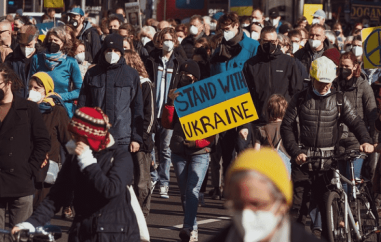Merz Engages with Greens Amidst Shifting Political Dynamics
A shootout in Nigeria's northeastern state of Yobe has claimed the lives of five policeman and twenty gunmen. The lives were lost during a bank robbery by suspected Boko Harem militants. It yielded $56,600 which was later recovered by police. The attack was typical of Boko Harem which has increasingly used bank robberies and kidnappings to fund its activities since an uprising in 2009. The robbery came shortly after a major military offensive by the allied forces of Nigeria, Chad, and Niger.
Despite being the largest oil producer in Africa, many of its people still live in poverty. There is a stark contrast between the wealth in the southern states and the poverty in the northern.
Nigeria also has a strong religious divide, with 50.8 percent Christian and 47.8 percent Muslim. Islamic groups often criticize the Western influence on Nigeria's society. These frustrations and its wealth inequity have led to an increase in Islamic insurgencies.
Boko Harem was formed in 2002 by Mohammed Yusuf. It's official name translates to "People Committed to the Propagation of the Prophet's Teachings and Jihad" but residents nicknamed them Boko Haram which roughly translates to "Western Education is Forbidden". Initially Muhammad Yusuf opened a mosque and an Islamic School. Yusuf was fiercely against western education. Yusef's goal was to create an Islamic State where education reflected his Muslim ideals.
The school and Mosque became an easy recruiting ground. In 2009 he had enough followers to initiate a spate of attacks which killed 1000 people. He was captured by the government and died in police custody. A government crackdown on his supporters saw hundreds killed. The crackdown was blamed by experts for inciting more violence and the group reformed quickly under new leader Abubakar Shekau. In 2010 they attacked a prison, freeing hundreds of supporters. In the same year they attacked a military barracks on New Year's Eve and in 2011 they killed 41 people in the Christmas Bombings. Kidnappings also provide necessary funds. A confidential report said they were paid 3.15 million dollars to free a group of seven French hostages. It did not say who paid the money.
The group's new leader Abubakar Shekau resides over an extremely decentralized group, making it very hard to eradicate. He does not communicate directly with his foot soldiers. He commands a few cell leaders but even then contact is minimal. The unifying force is their ideology, which this guides their actions. He acts as their spiritual guide as well as their physical leader. This makes it difficult for intelligence officials to track their plans. Leaders' places are filled quickly after death making assassinations futile.
Analysts say the threat will not go away until the state addresses the true problems: inequality and an education system which does not have the support of its Muslim population. Until this happens, Boko Harem will continue to find support and it will continue to launch attacks.










































